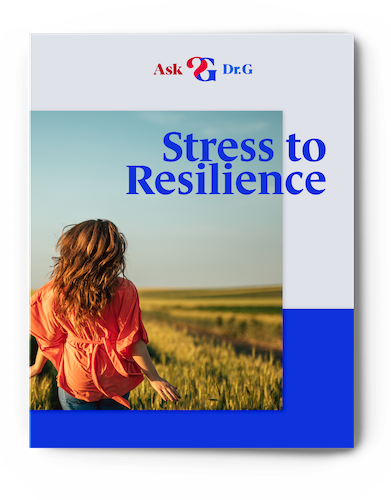 My 3 and 7 year old love playing together but their play usually results in the expected amount of conflict. I find myself questioning how involved I should get in their disputes. Should I say something when I see someone being unfair? Should I wait until they come to me for help (usually when it has escalated to tears)? Should I make them work it out on their own? It is supremely important to me that they have a positive relationship but I don’t want them to rely on me as an intermediary in their relationship.
My 3 and 7 year old love playing together but their play usually results in the expected amount of conflict. I find myself questioning how involved I should get in their disputes. Should I say something when I see someone being unfair? Should I wait until they come to me for help (usually when it has escalated to tears)? Should I make them work it out on their own? It is supremely important to me that they have a positive relationship but I don’t want them to rely on me as an intermediary in their relationship.
Melissa, in PA
These are such important questions we ask ourselves as parents of sibs!
You certainly already have some common sense guidelines about when you have to get involved, right?
- Someone is bullying. If you see a behavior from one to another that you think might be bullying, ask yourself this question: “If I saw a child on the playground do/say that, would I call it bullying?” If so, then you have to step in, bullying is not OK at home either! And remember, younger kids are just as likely to try to bully older ones.
- The fighting is no longer consensual. That means that one child wants out, but doesn’t know how to stop the fight or argument. It takes a long time to learn that it takes two people to agree to fight, and sometimes it’s best to just walk away.
- Avoiding the insurance claim. At our house we have a rule – if something is likely to require money from our insurance – medical or homeowners – it’s done. End of story.
Now, let’s talk “intervening” vs “interfering.”
It’s a really tough call! As hard as I find this to do, it’s really best to let our kids try to work it out on their own, for just the reason you stated. We want to build in them the habit of taking their feelings and ideas to the other person because that means they are communicating and problem-solving, not tattling.
There are some times when telling is not tattling, and there is a world of difference between saying “Mom, she just…!” and “Mom, I’m trying to talk to my brother and it’s not working. Can I have some help?”
When I become the complaint department, and there is no sign of deep emotional or physical wounds, I always ask, “What did your brother say when you told him?” This doesn’t always solve it, but it does make clear my expectation that they will look to each other fora solution first.
As for stepping in when you overhear something that is unfair, you probably don’t need to. Kids are excellent at knowing when they’ve been wronged, and keep track of “fair” better than Supreme Court judges or standardized test designers! If you feel that one of your kids is repeatedly manipulating or taking advantage of another, then it’s probably time for a one-on-one or family sit down. This happens pretty regularly at my house 😉 !
You don’t mention it, but I want to touch on one other scenario:
The Wrestling Match Gone Bad.
If your kids like to tussle, make a couple of ground rules:
- Everyone has to agree before the wrestling/tickling starts. No surprise attacks!
- If you agreed to wrestle, you can’t try to get someone in trouble for it after.
- Anyone can “tap out.” No reason necessary. This means tapping the shoulder of your opponent or the ground twice and is an all-stop signal. This works in martial arts and it works in my living room. If somebody taps out and you don’t honor it, you’re in hot water.
Our kids will have, we hope, decades to love, argue with, challenge and support each other. More important than breaking up the “you have three and I only got one” struggles, we have to help them set communication patterns for life. Let me know how it goes!




9 thoughts on “Sibling Conflict – Step In or Step Back?”
I’m so over the fighting, and even the wrestling. My girls are so rough with each other, and I never know how to handle it. And when they’re being silly, they can’t stop giggling long enough to listen!
I totally get that!
I don’t usually step in with my girls, ages 12 and 9. My oldest thinks that it’s a cop out, that I’m disinterested when I listen to her complaint then ask her to talk to her sister. The 9 yr old thinks everything should be decided in her favor because she’s younger and cute. I try not to give an absolute “you stop doing that to her” because it does feel like side-taking (and of course, both claim I ALWAYS take the other’s side, NEVER taking the other’s who is ALWAYS so wronged.) I will also tend to tell them to simply separate, play apart. If she’s irritating you that much, then maybe you don’t really want to be around her right now. They usually magically wind back up together. As for the 3 yr old, most of what he says rules and I dare those girls to tell me he is not a perfect angelic cherub of a boy (as he flings a plastic bat into one of their eyes again. It’s OK. I didn’t see it. His reputation remains intact.)
Arnebya, you clearly have an amazing understanding of your kids and their dynamics. And congrats on getting the one perfect little boy that never does anything wrong – so lucky! 😉
Great advice here.
Dr. G, these are great suggestions. I heard you speak at the Army War College. We have two boys, ages 7 and 9. I could completely identify with the stories you shared about your four boys. (God Bless you and your husband!). My husband and I have been struggling with how to manage sibling conflict, and your suggestions are to the point, easy to implement, and give us very practical things to try in our home. Thank you!
Jana, thank you for taking the time to let me know. I was honored to speak at the College. My thanks to your husband for his service and to you and your boys for your sacrifice. I hope your next posting is all you hope for. May your family be protected as you are protecting mine.
What do you recommend for repeated “nudging” (doing the least action known to make a sibling scream)? What do you do for mutually engaged screaming or shouting-to-intimidate matches? What do you do for an older sibling repeatedly structuring competitions, that developmentally a sibling 4 years younger always loses (games, races, word puzzles, coordination challenges)? (Older brother is 9, younger sister is 5) We’ve had many talks to try to get to the root of things, to share how it makes us feel, and to problem solve together, as well as to set clear rules (which then need reinforcing) and on occasion even incentives … Should we get closer to the situation, or step further away?
Thank you!
This is such a common occurrence! I would say that your older child needs to “structure” things so that every second game is designed and controlled by the younger sibling. If your older child genuinely likes the younger one at the moment, help him understand that he is teaching her what love looks like. Does he want her to surround herself with friends (and eventually a life partner) that takes advantage of her? If he is not swayed by this, explain that you can’t allow that to happen, and you won’t let him organize any games or competitions between the two of them until you see that he can be trusted to model actually respectful behavior. It will be an enormous pain for you Alexa (my huge sympathies, I’ve done this) but it may take only a few days for him to get the message. Will you let me know?
Comments are closed.